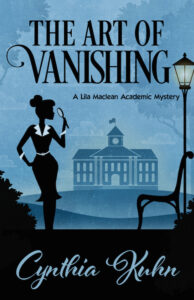Your writing life is inextricably linked to other writers, teaching, and exploring what it means to be human. How do all those parts go together for you in your daily life?
I begin every episode of Author2Authorby saying that “What it takes to write the book you want to write is what it takes to lead the life you want to lead.” I actually mean that. To me, creating on purpose – which is what writers mustdo if they want to fill a blank page – is what it means to be human. So whether I’m writing a memoir, writing a blog for authors, interviewing authors, coaching would-be authors, or teaching a workshop, I’m always writing or talking about the exact same thing: How do you live on purpose?
And I should add, on a purely practical level, I used to believe in chopping wood. That was how I worked. I’d say, “Bill, you may not want to do this, but you’re going to do it anyway because it’s the right thing to do.” I got tired of working that way, and so now I only do things when I want. Fortunately, I always wantto do these things, only sometimes I forget that I want to. Over the years, I’ve taught myself how to remember that I want to do this or that, and once I have, I’m off.
Did you find your voice as a writer and your voice as a writing coach/teacher together? Or did one lead the other? Tell us how that came about.
I really found my voice when I started writing to support and encourage writers. That was where I learned to say, “Everything is okay even though it looks like everything is not okay.” I wrote without teaching for several years, but all that writing taught me the language I wanted to use to teach and lecture. Now, when I’m writing, I’ll often jump up from the desk in the middle of a paragraph and begin pacing around my office practicing how I would teach what I just discovered. And sometimes in the teaching I learn something I can use in my writing.
I also love teaching because invariably someone asks a question I can’t answer to my satisfaction. I don’t like this experience while it’s happening (I like to have all the answers), but then I’ll mull the question over for a week or two or three and eventually I’ll have a new insight about something that I might not have come to otherwise. Teachers usually learn way more than students.
Writing can be a lonely calling, what drew you to making it a little less lonely for other authors? What induces you to come to the aid of the rest of us?
I wrote to help myself. Everything I said was something I needed to hear. It’s like there are two Bills: The one who’s suffering, and the one who never suffers. When I’m writing, I turn it over to the one who never suffers. It’s easier to find him in the quiet of my workroom. Out in the hurly-burly of life, with all those other people, it’s easy to lose track of him. I am thrilled that my work is of use to other people, but frankly, by the time I’m done with something it’s usually served me so well that anything else that comes of it is gravy.
And I should say that I am never less lonely than when I’m writing and it’s going well, when the Bill Who Never Suffers is in the fore. That is the opposite of loneliness. That is what taught me that loneliness is always just forgetting who I actually am.
Check back September 15 for Part II



